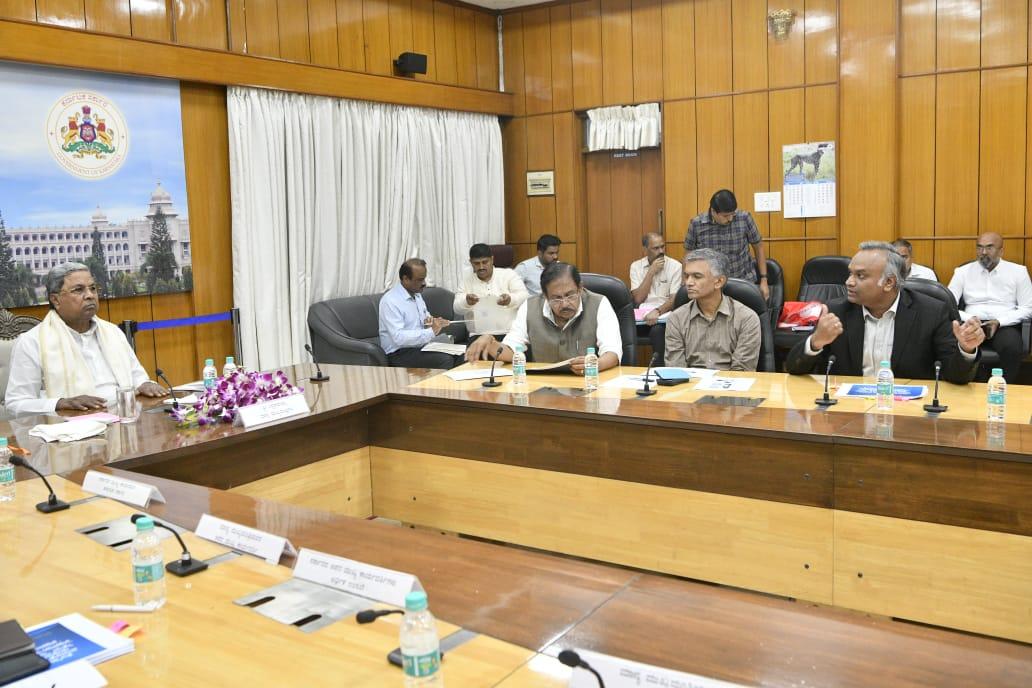By: Team Logically Facts
August 28 2023
Editors Guild of India expresses concern over state-run fact-checking unit in Karnataka, minister responds

(Source: X/@CMofKarnataka)
Soon after Editors Guild of India, an association of editors and journalists in India, issued a statement on Karnataka government's decision to setup a fact-checking unit, Karnataka IT/BT (Information Technology and Bio-Technology) Minister Priyank Kharge on Tuesday, August 29, responded to the concerns and said that the unit will be "devoid of bias and will transparently explain the methodologies employed to the public."
In a post on X (formerly Twitter), the minister wrote, "As acknowledged by the Editors Guild of India, the online realm faces a challenge of misinformation and fake news, necessitating the implementation of measures to address this issue. I wish to reassure the esteemed organization that our fact-check unit will uphold an apolitical stance, devoid of bias and will transparently explain the methodologies employed to the public.” He added, "Let it be clear that the establishment of this unit is in no way an attempt to impinge upon the freedom of the press."
What had Editors Guild said?
On Sunday, August 27, the Editors Guild had asked the Karnataka government to “clearly specify the scope of and powers of the proposed fact-checking unit” and also explain the governing mechanism under which it will operate.
The statement read, "While admittedly there is a problem of misinformation and fake news, especially in the online space, efforts to check such content have to be by independent bodies that are not under the sole purview of the government, lest they become tools to clamp down on voices of dissent.”
It added that such a monitoring framework should be set up with due consultation and involvement of all stakeholders, including journalists and media bodies, so that press freedom is not tampered with. “We further urge the state government to undertake a consultation exercise with press organisations for developing this framework,” the statement added.
The Guild also said that it has filed a petition in the Bombay High Court, challenging the Central government rules under the contentious Information Technology (Intermediary Guidelines and Digital Media Ethics Code), that allow the setting up of a 'fact-checking unit' under which the executive will have sole authority to determine what is fake or not, and with powers to order content take-down.
“We urge all govts to ensure such units are independent of executive control and their scope and powers are specified so as to not trample upon press freedom (sic),” the Guild added in a tweet, sharing the statement.
What about Karnataka's fact-checking unit?
Karnataka Chief Minister Siddaramaiah had on Monday, August 21, approved the formation of the fact-checking unit, and in a release issued a day later, stating that “a three-step measure was approved to detect fake news and syndicates that create fake news, stop the spread of fake news, and give severe punishment to the accused.”
This fact-checking unit will have a monitoring committee, a fact-checking analysis team, and some nodal officers, the statement added, and the unit will function using advanced tools to detect misinformation.
Priyank Kharge had said that the fact-checking unit will be functional under the State Home Department, while the IT/BT (Information Technology and Bio-Technology) department will help devise the necessary laws to deal with people propagating fake news and involvement in cybercrime.
(Note: This article has been updated to add Kharge’s response to the Editors Guild of India.)


